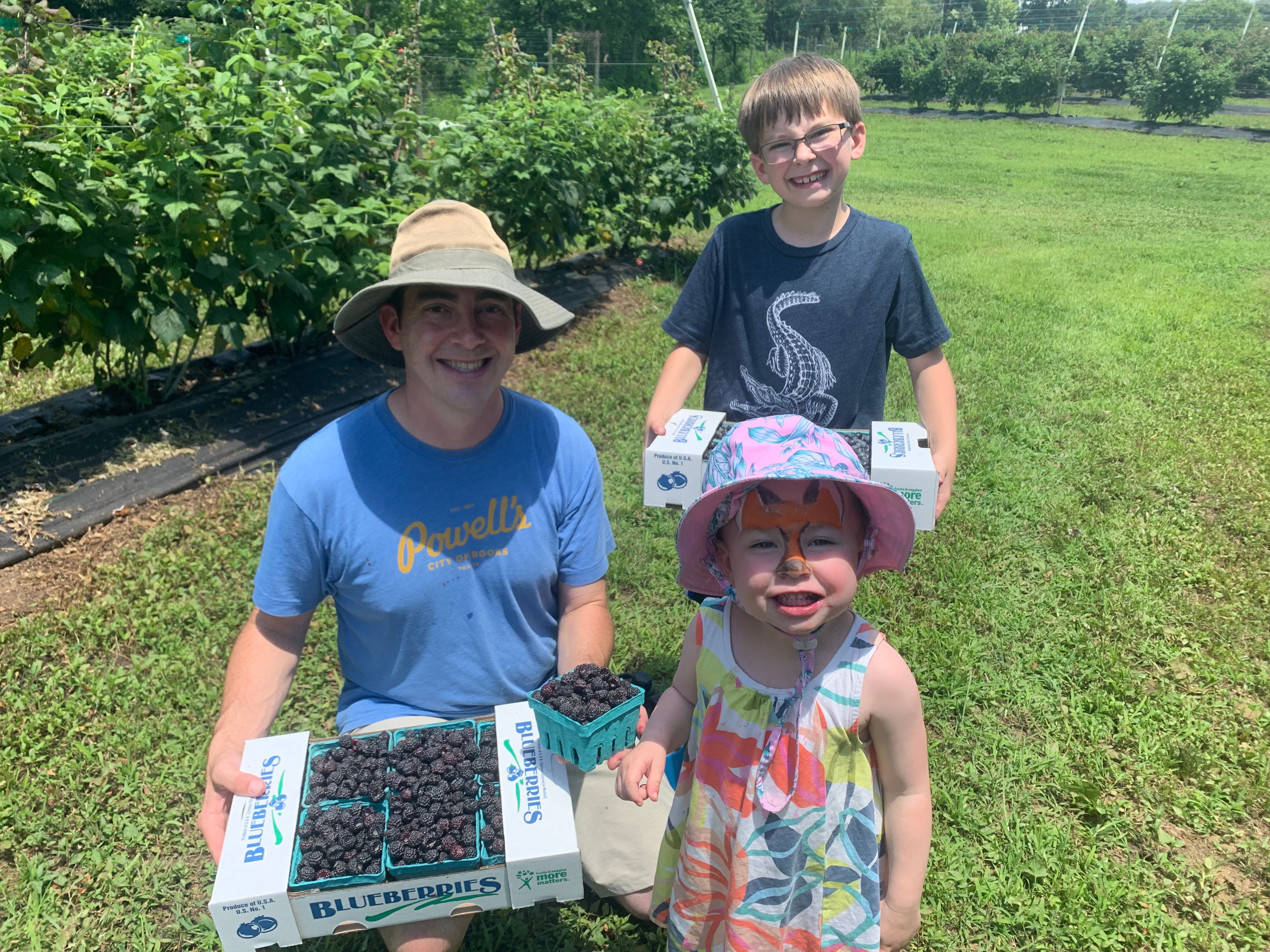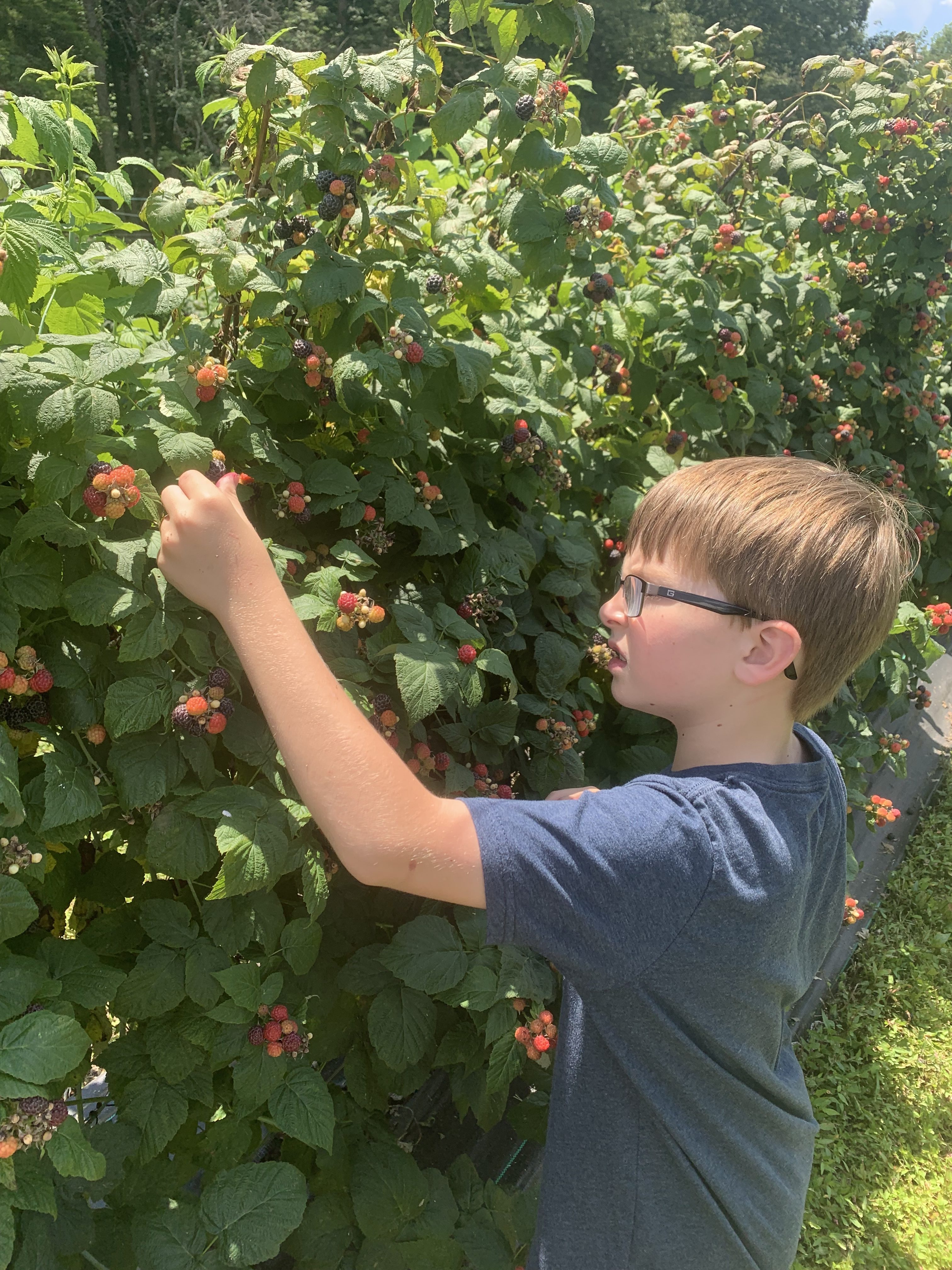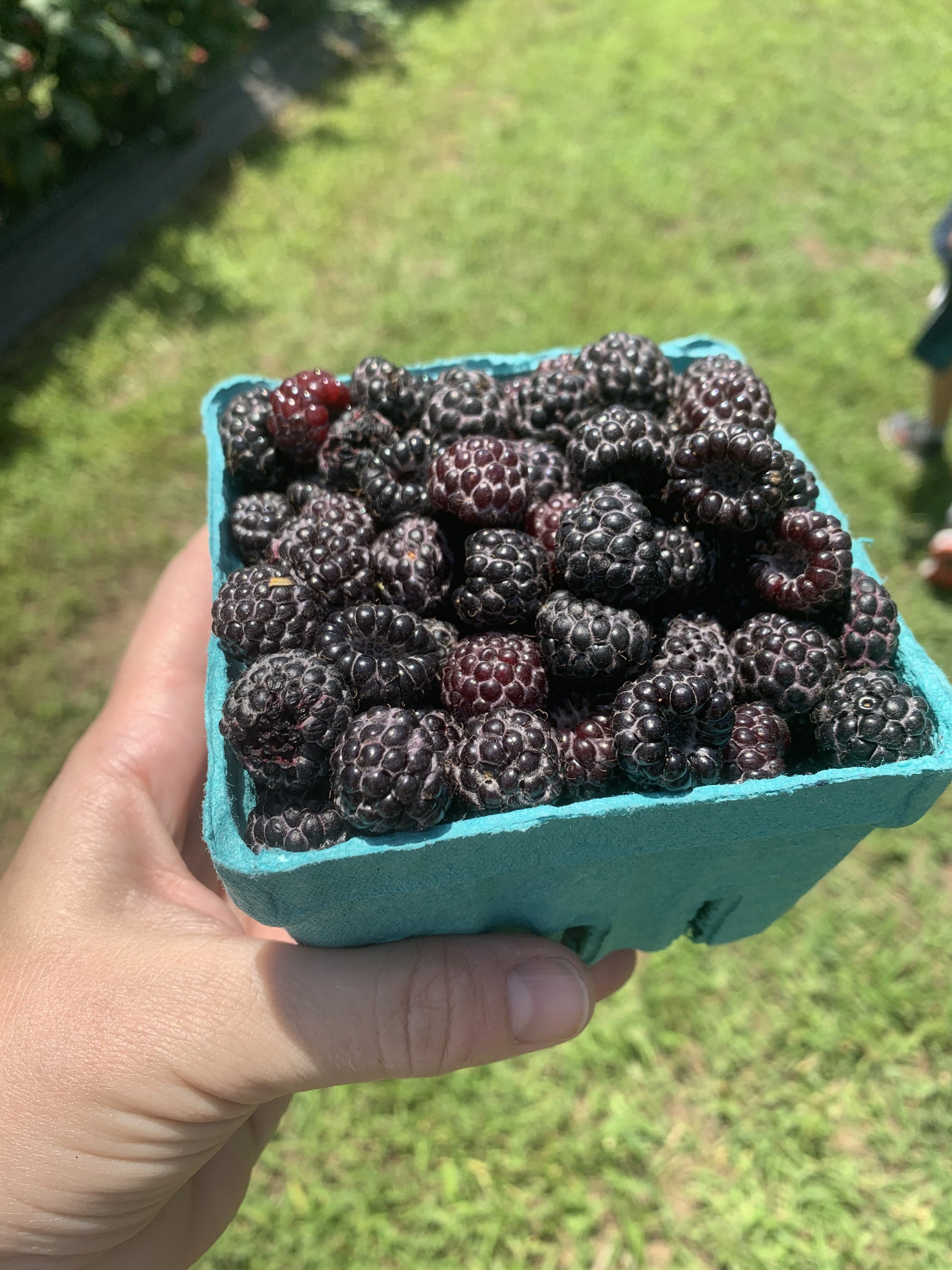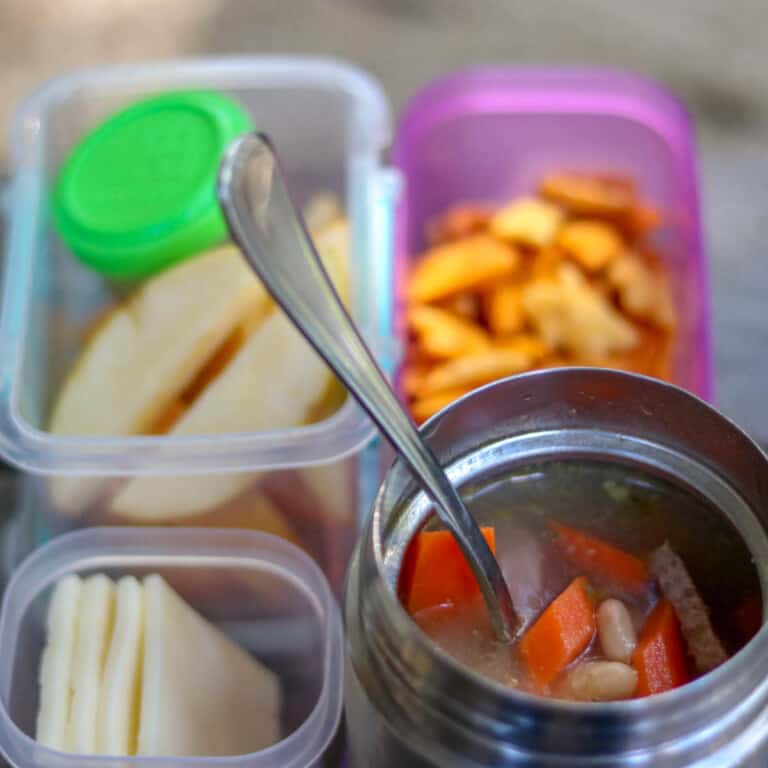In July, my family and I visited River Ridge Farm for their “Berry Fest – U Pick Day.” It was a hot July day filled with berry picking, hayrides, face painting and yummy food.
The children enjoyed filling the pint containers with blueberries and black raspberries.They also loved the hand made snow cones with syrup made from the berries.
I was excited for my children to see where some of their food comes from, but we left having a better understanding of all the work and logistics it takes to get food to us in our city grocery store.

River Ridge Farm is in Independence, VA. It is owned by my aunt, Charlotte Hanes, which allowed us to ask lots of questions during our day on the farm. They primarily raise grass-fed beef and added berries to their farm a few years ago.
They raise berries in the beautiful Blue Ridge Mountains, free of pesticides and using sustainable farming methods. When we arrived at the farm, we purchased 6 pint containers for $30, $5 per pint.
This is about what you would pay for a pint of organically grown berries in a grocery store.At first, this sounded high to me, but as I learned more about the many steps that go into getting berries into our hands, it now sounds like a bargain.

The Berry’s Journey
As we picked and talked to the farmers afterward, we learned about the many steps that go into planting and pruning the bushes. My son learned about the methods the farm uses to keep animals and pests away, including fencing and sound.

There’s a short time period that the berries in the field become ripe, and need to picked. Thus, there is a labor challenge with a high need of labor for a relatively short period of time.
River Ridge Farm is a member of the H2-A Program; a government program that helps them have workers to pick their berries. There are many, many steps for a farm to become a member of this program.
They use an approved agency to find seasonal workers to pick their berries. The agency handles healthcare for the workers and the farm pays a living wage and provides transportation while they are working for them.
Berry pickers pick the berries in the fields and transport them within 30 minutes to a truck in the field. The berries are then cooled in the truck by forcing air into the plastic clam shells. This cooling process gets the heat of the field out of the berries and slows down the ripening process.

A challenge for a small farm to get berries to consumers is transporting them. It was explained to me that many transporters don’t want to take a truck load full of berries several hours away, if they don’t have anything to transport back.
And, there’s not a lot of food that needs to be transported back to Grayson County, Virginia, as so much food is grown there. Because of this challenge, River Ridge Farm has their own truck that goes to the Richmond and DC areas once a week to deliver their berries to Mom’s Organic Market, a local area organic market chain.
These anecdotes are just the tip of the iceberg of the logistics and steps it takes for a farm to get food into our hands in the city.
Love this post and want to save it for later?
Just fill in your email address below, click “Save It” and get it delivered right to your inbox.
Teaching Children Agriculture
I understand that we all can’t visit a berry farm and talk to our kids about berry farming. This is a privilege we had this summer. However, teaching our kids where food comes from is a fabulous way to teach nutrition, free of eating “shoulds” or “good food/bad food” talk.

Here are some ideas on how to teach kids where food comes from:
- Watch a video of a farm. Here’s a great example from Sesame Street
- Read a book, such as Growing Vegetable Soup.
- Have a conversation. Ask your child questions about how things grow. “Do carrots grow in the ground or on a bush?” Lookup a picture of a carrot plant.
- Do a cooking activity like shaking cream in a mason jar until it turns to butter. Click here for more on making butter.
- Grow a container garden, you could start with herbs or one type of plant.
- Visit a farmer’s market and talk to a farmer.
- With older children, watch episodes of Vivian Howard’s A Chef’s Life and Samin Nosrat’s Salt, Fat, Acid, Heat

After a day of picking berries, we took them back to the house and I made a mixed berry cobbler. It was a hit! The kids were more likely to eat it because they had been exposed to the berries in the field. (They each probably ate a pint in the field.)
During the meal. we talked about the efforts they contributed to putting our dinner on the table and the extensive efforts farmers and farm workers go to to get food to us.
Look for Elizabeth’s Mixed Berry Cobbler Recipe in our next blog post! It is delicious!

We’re Elizabeth & Anna!
It’s great to have you here. We’re registered dietitians and we share tips to support you in raising kids with a healthy relationship with food.





